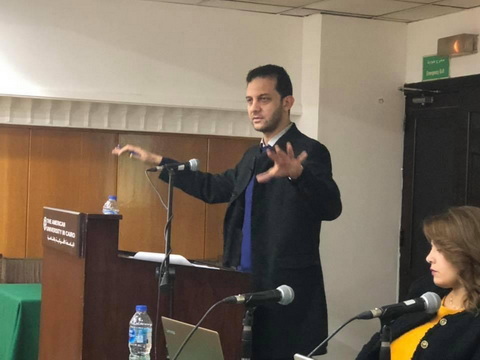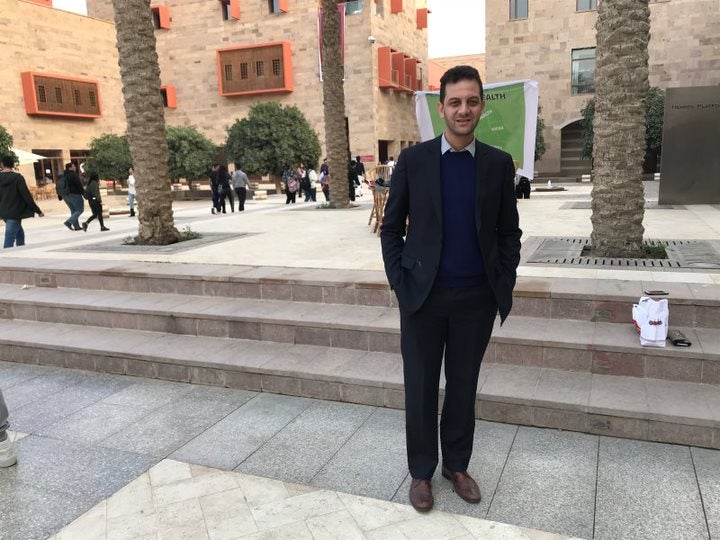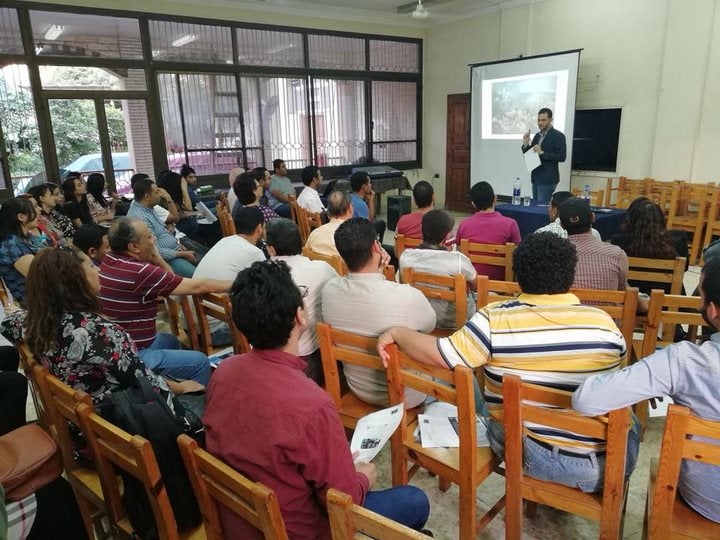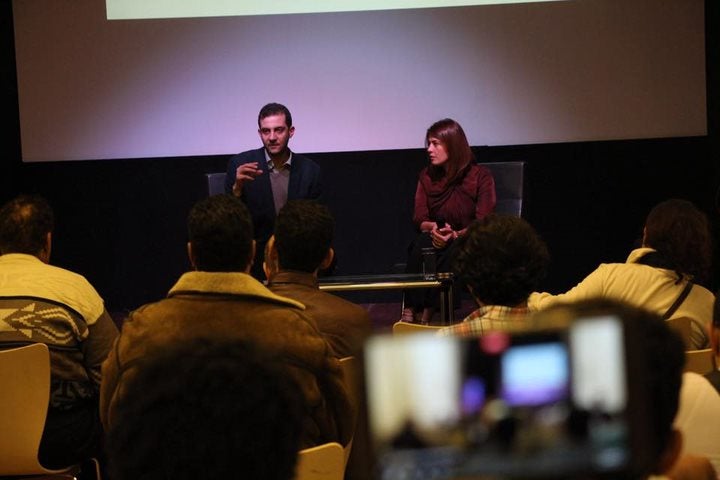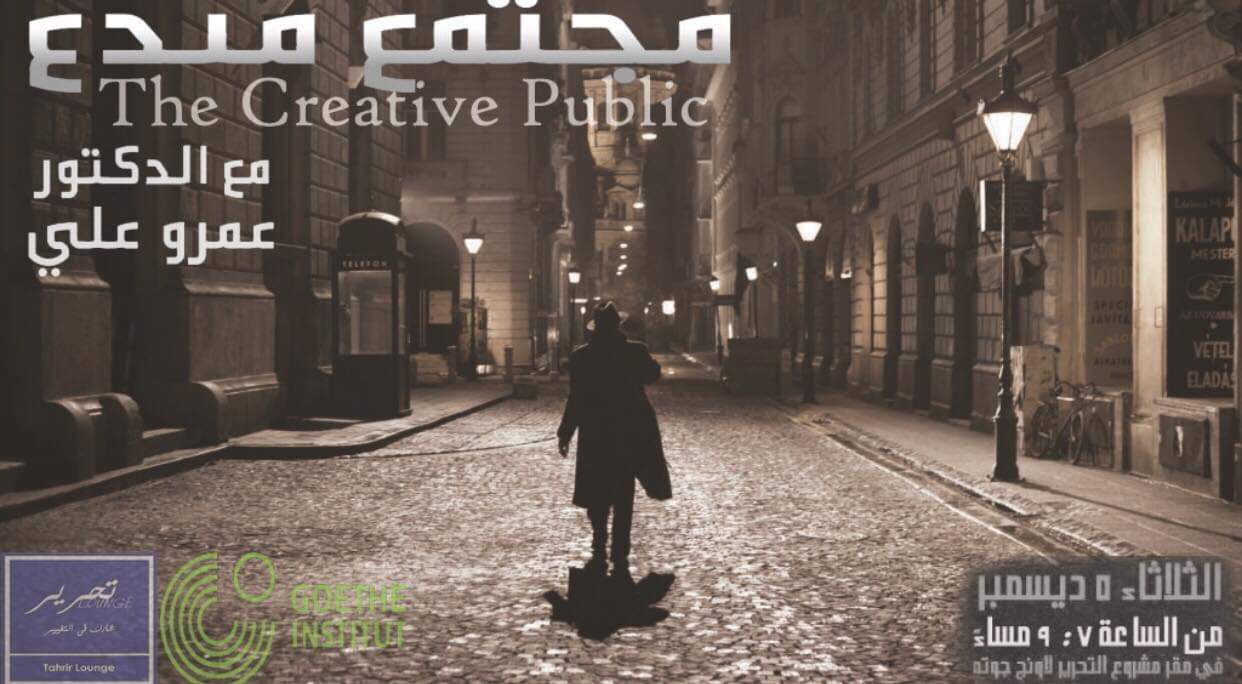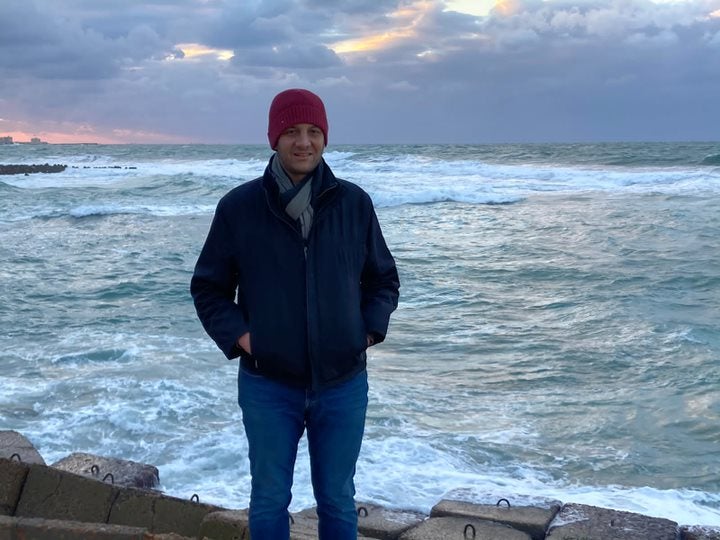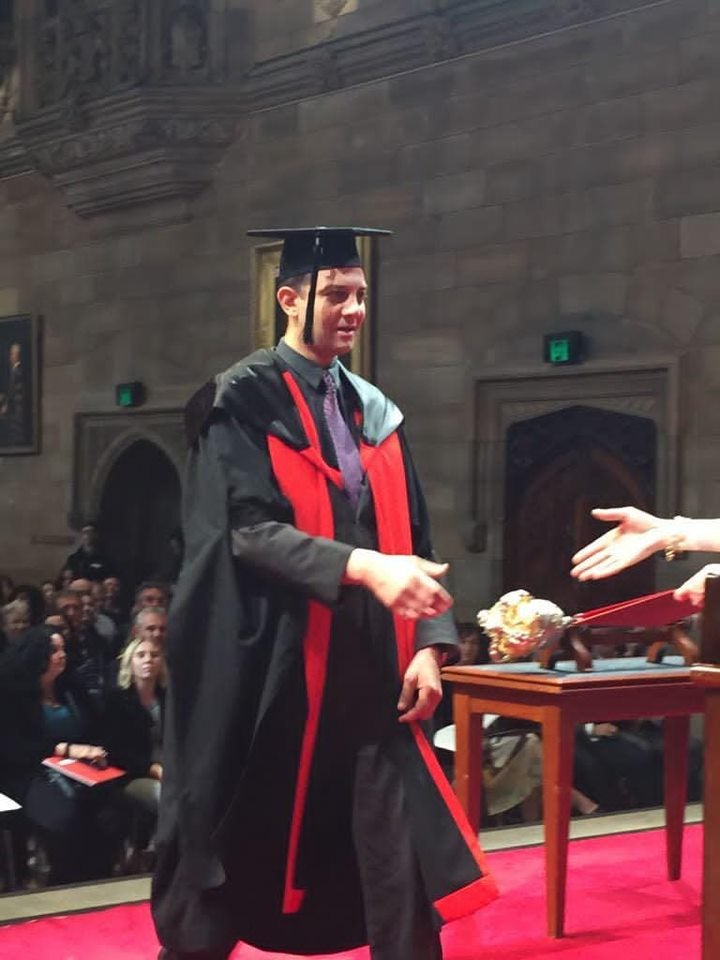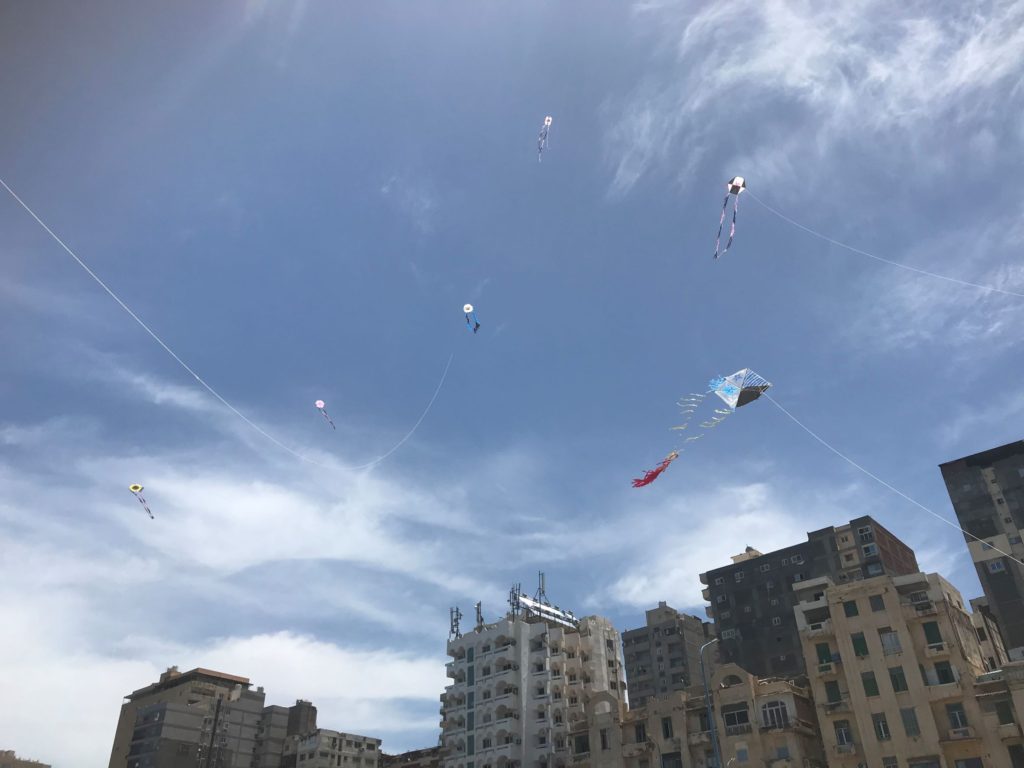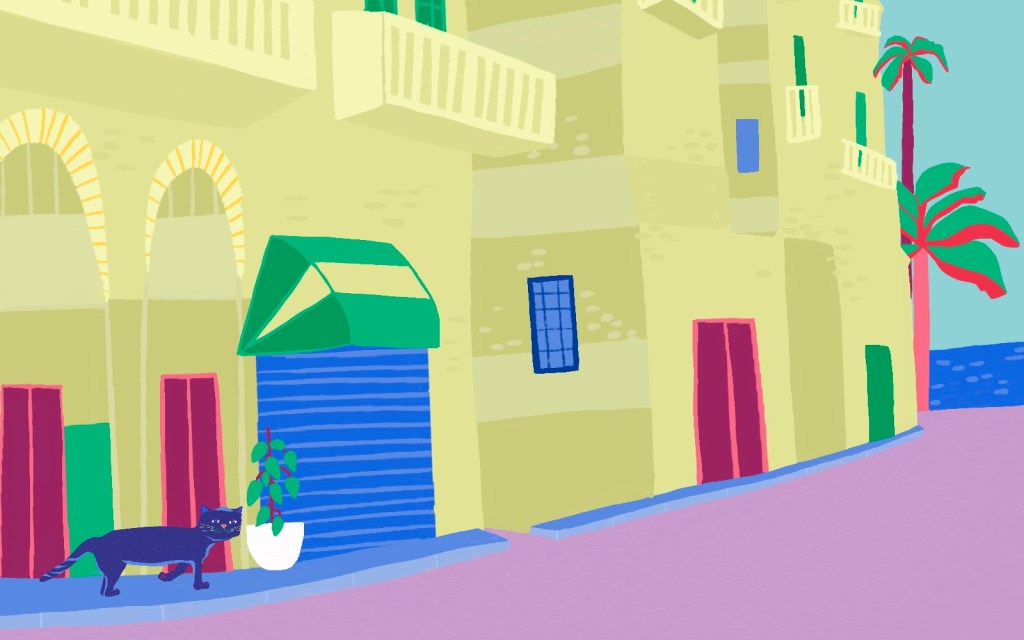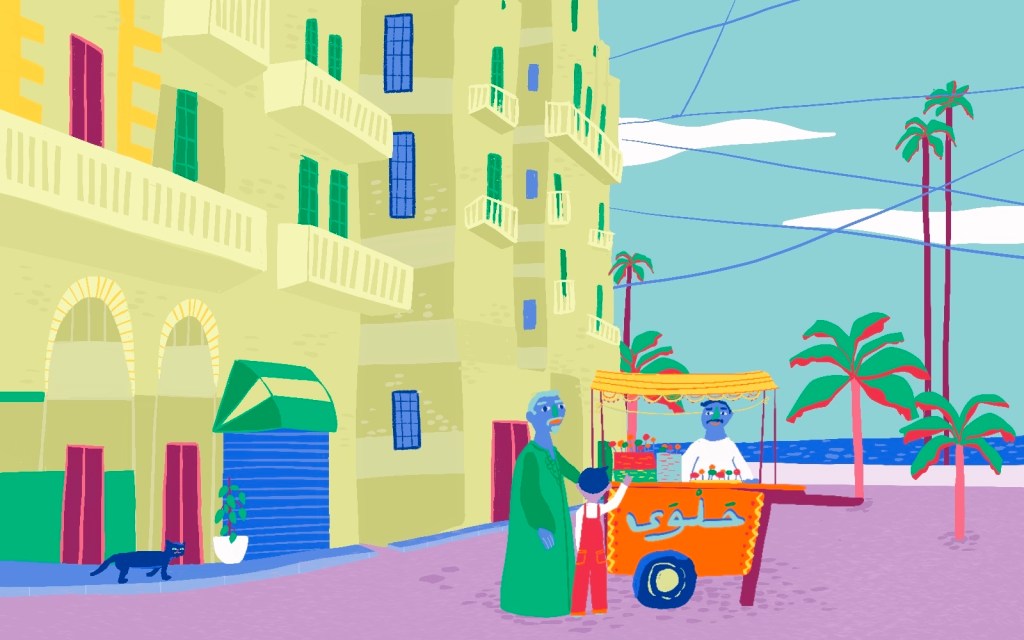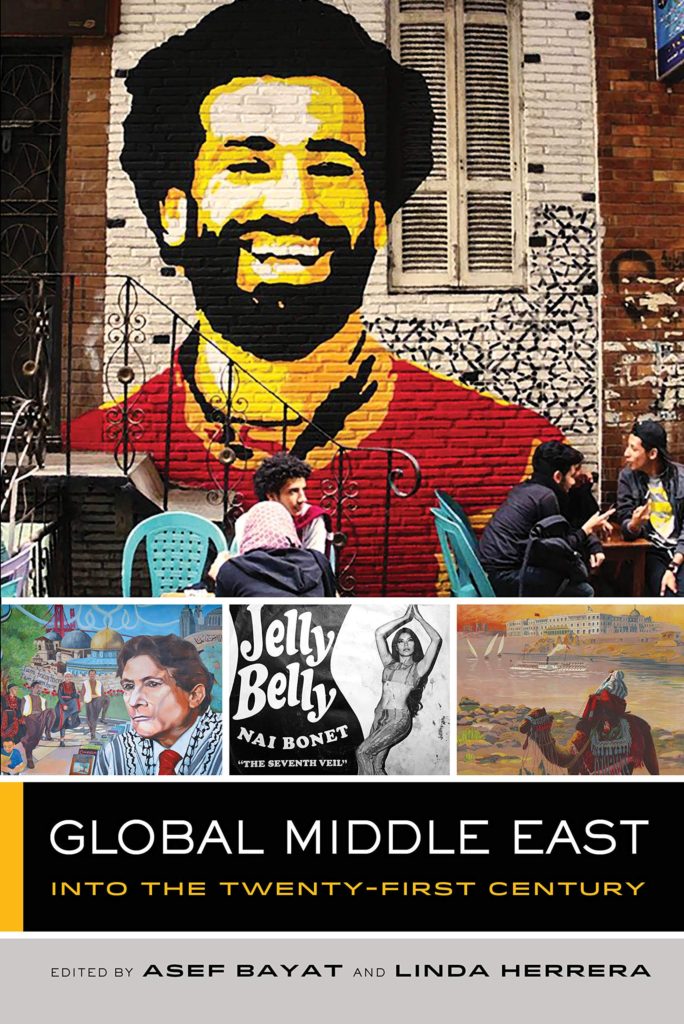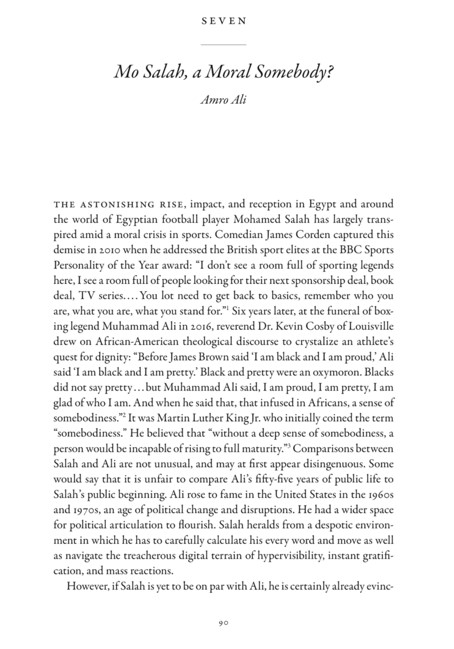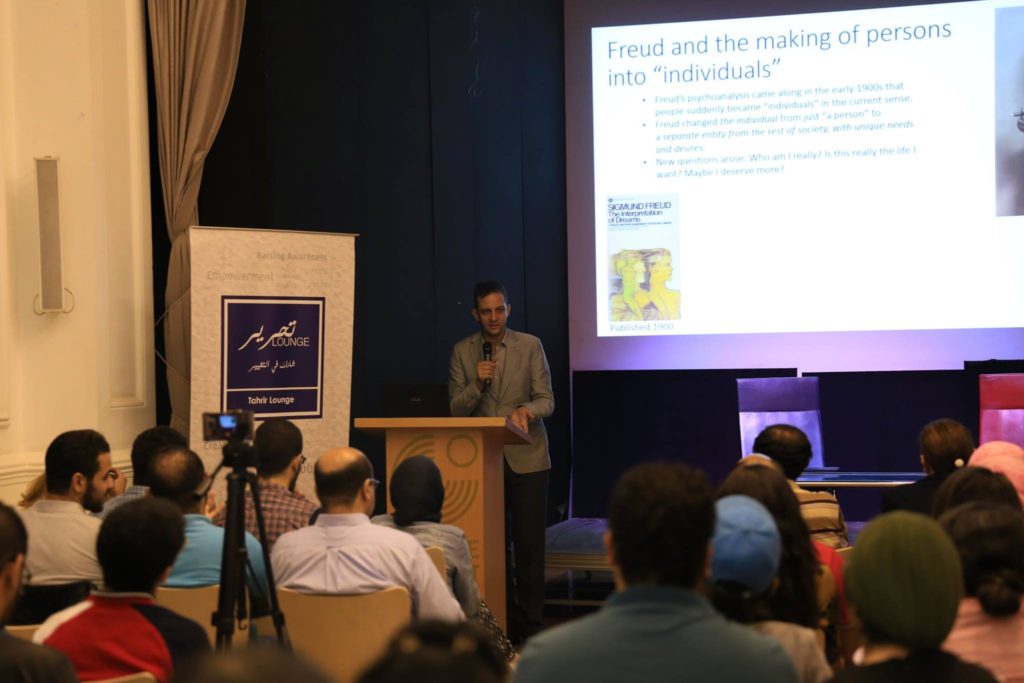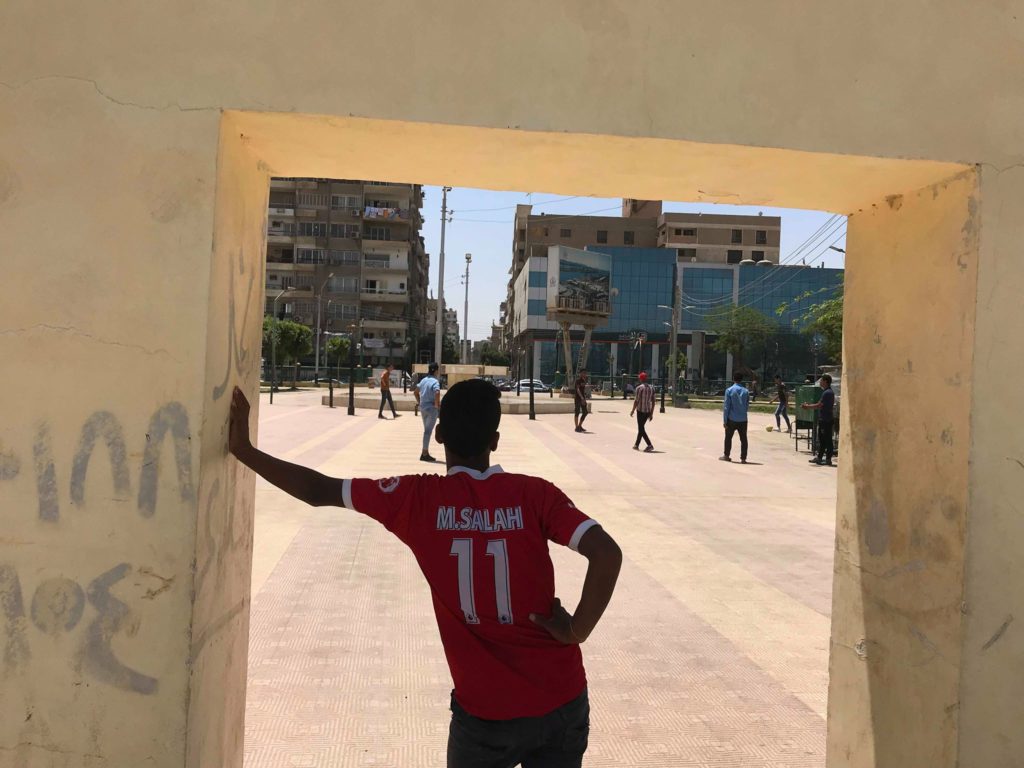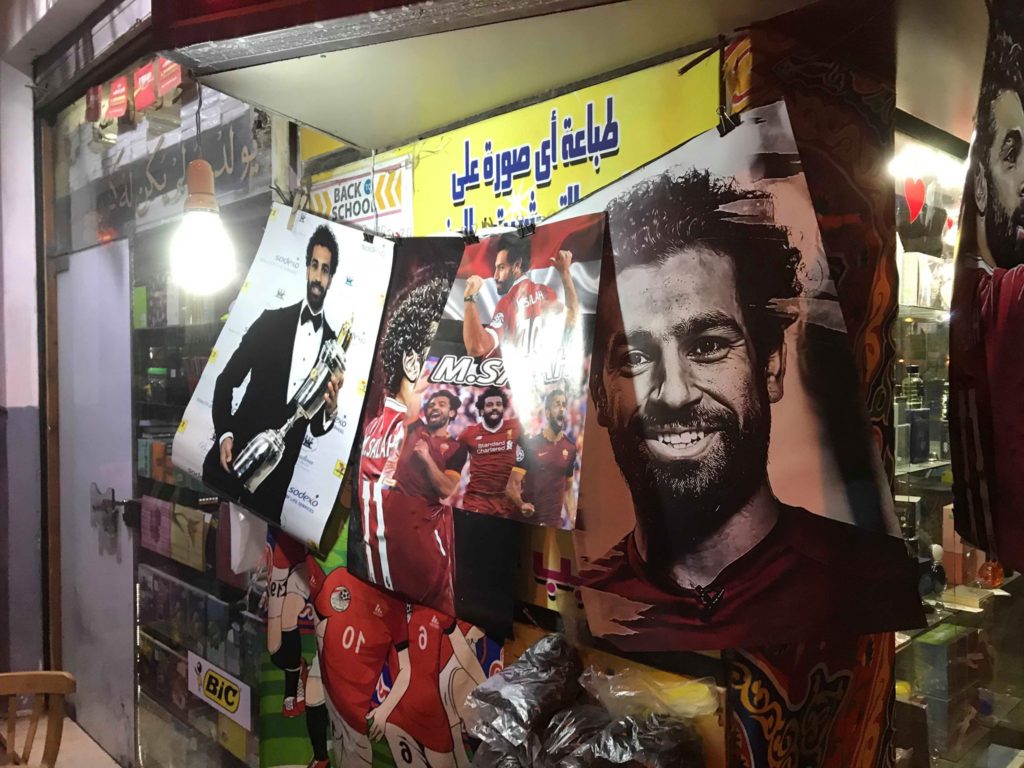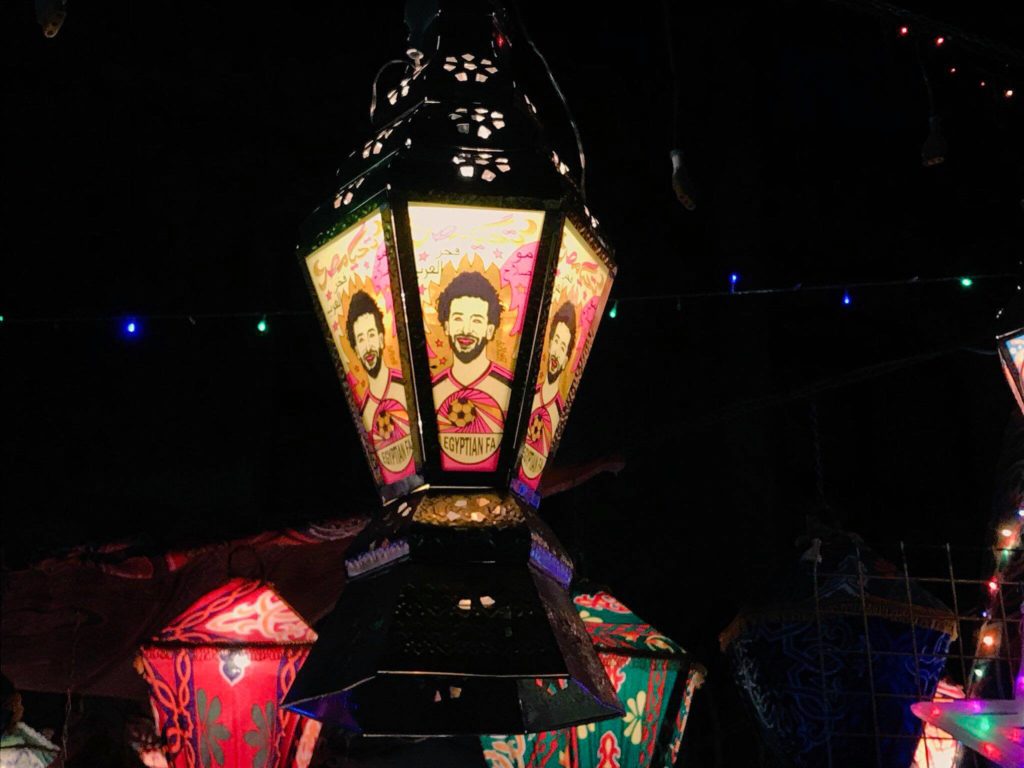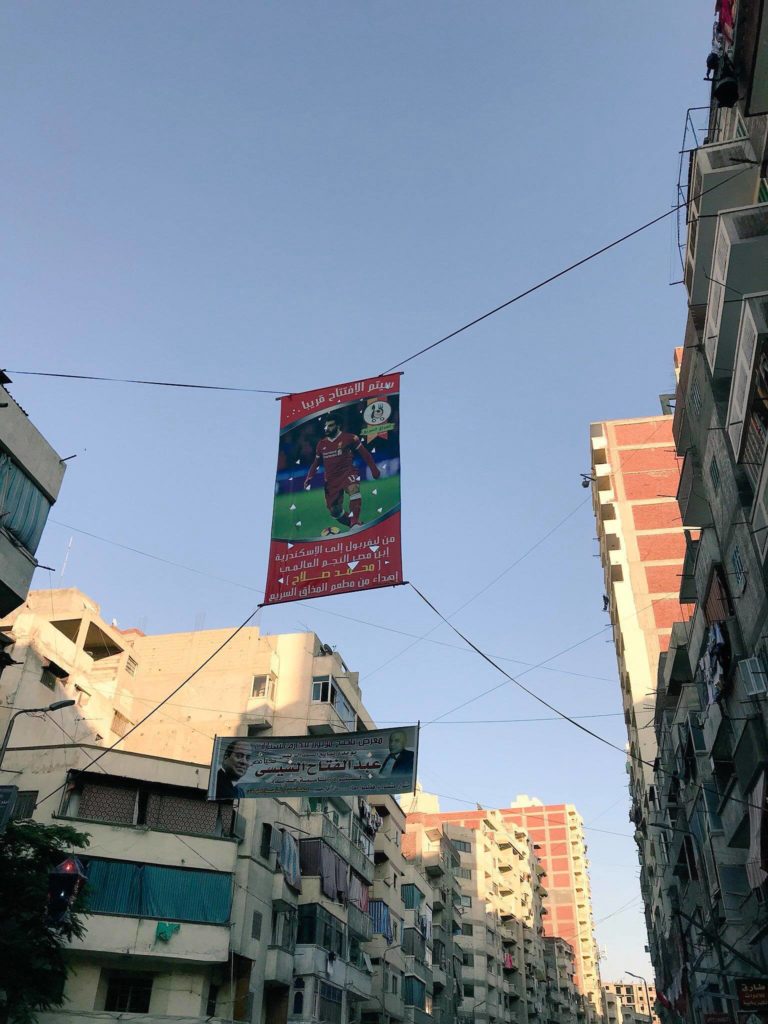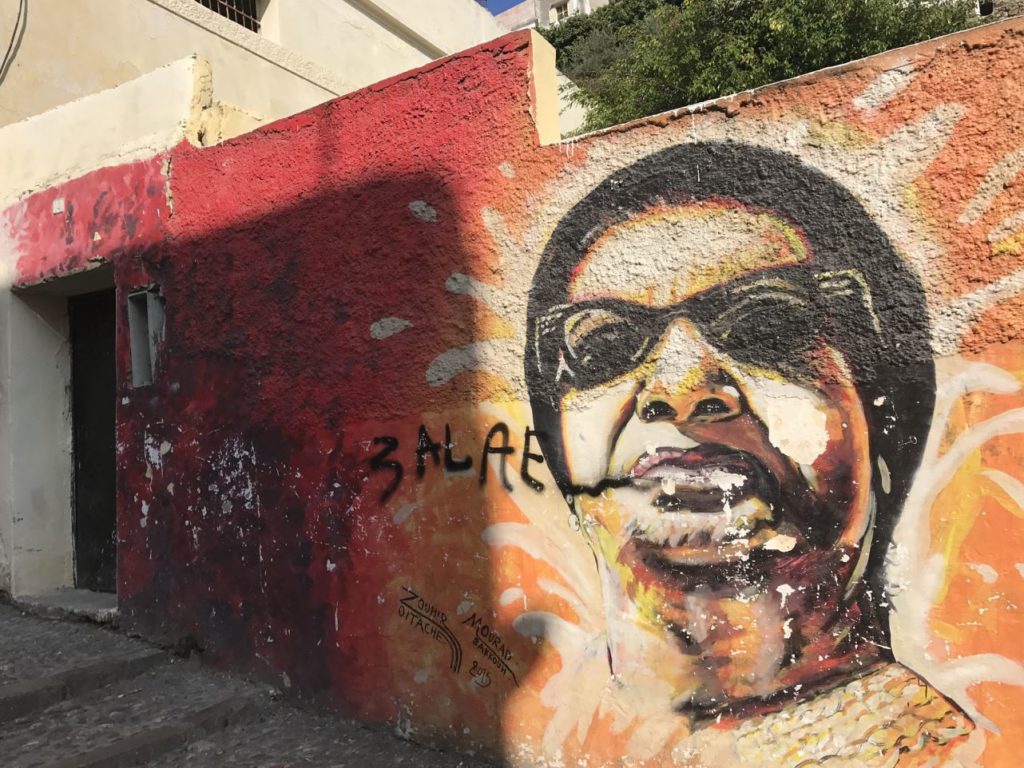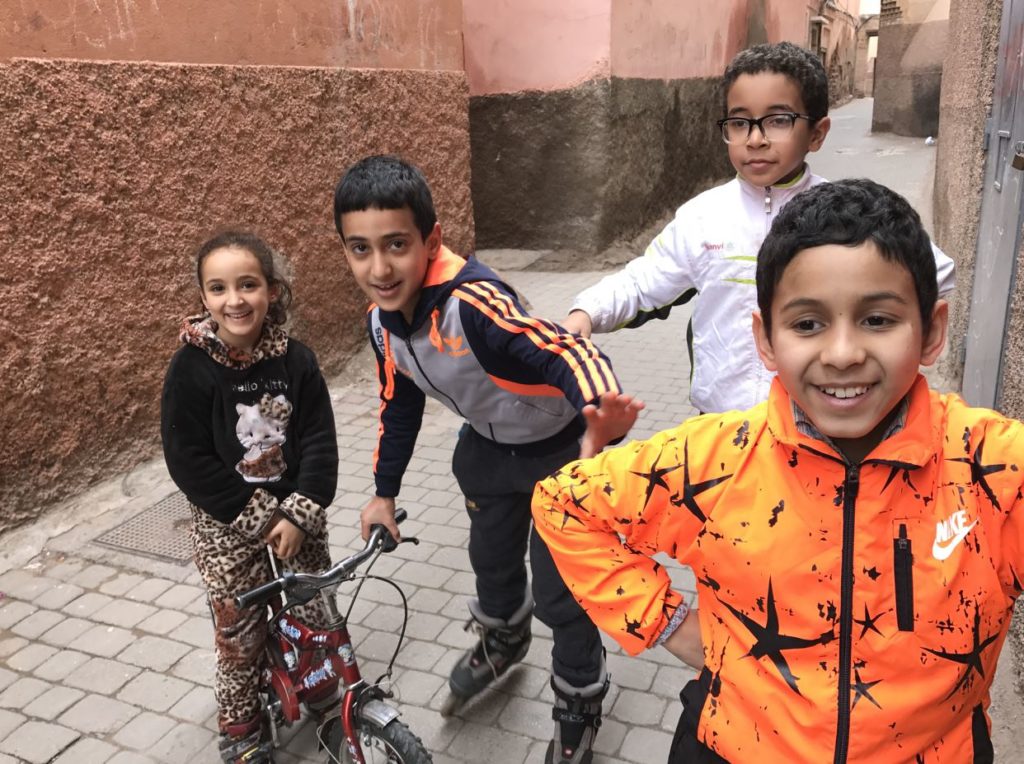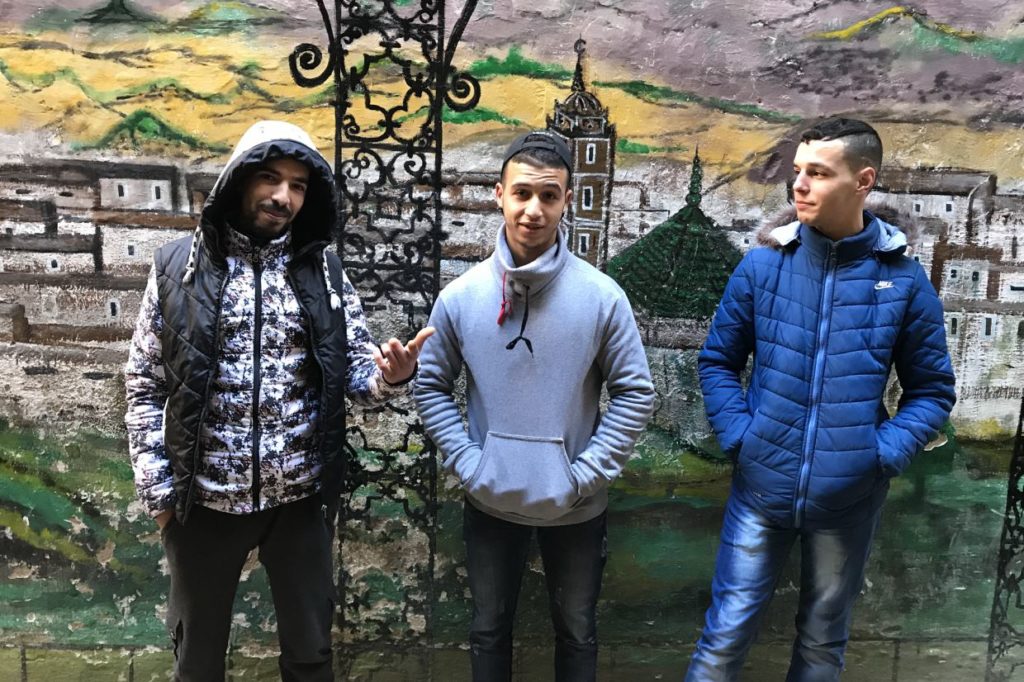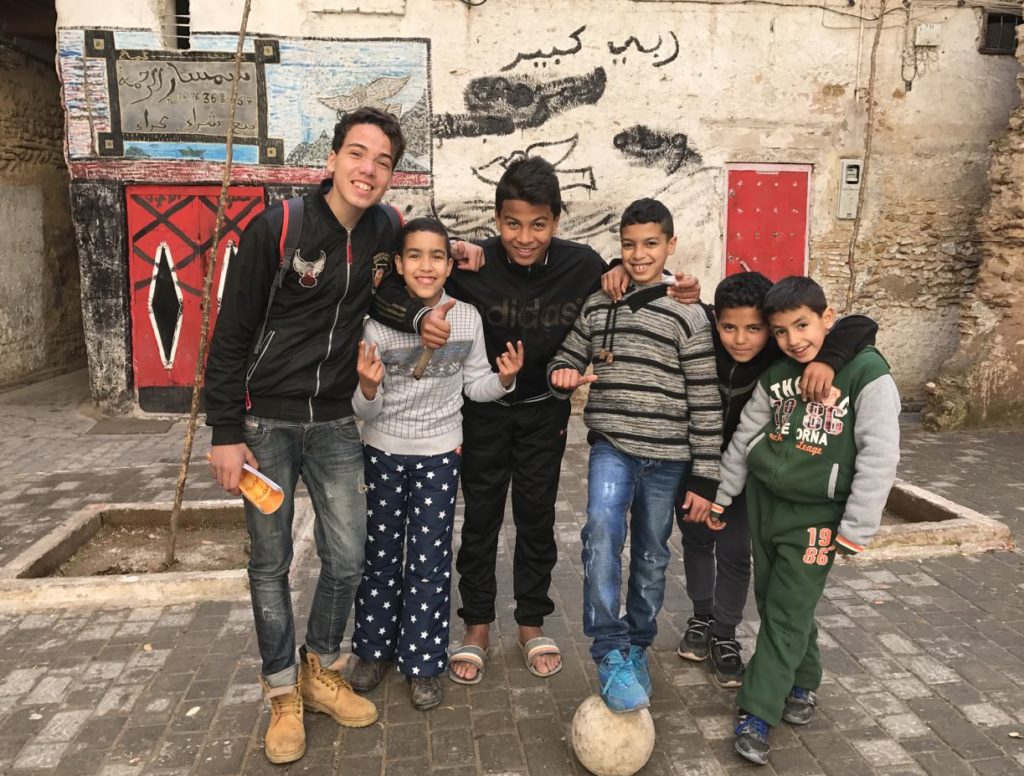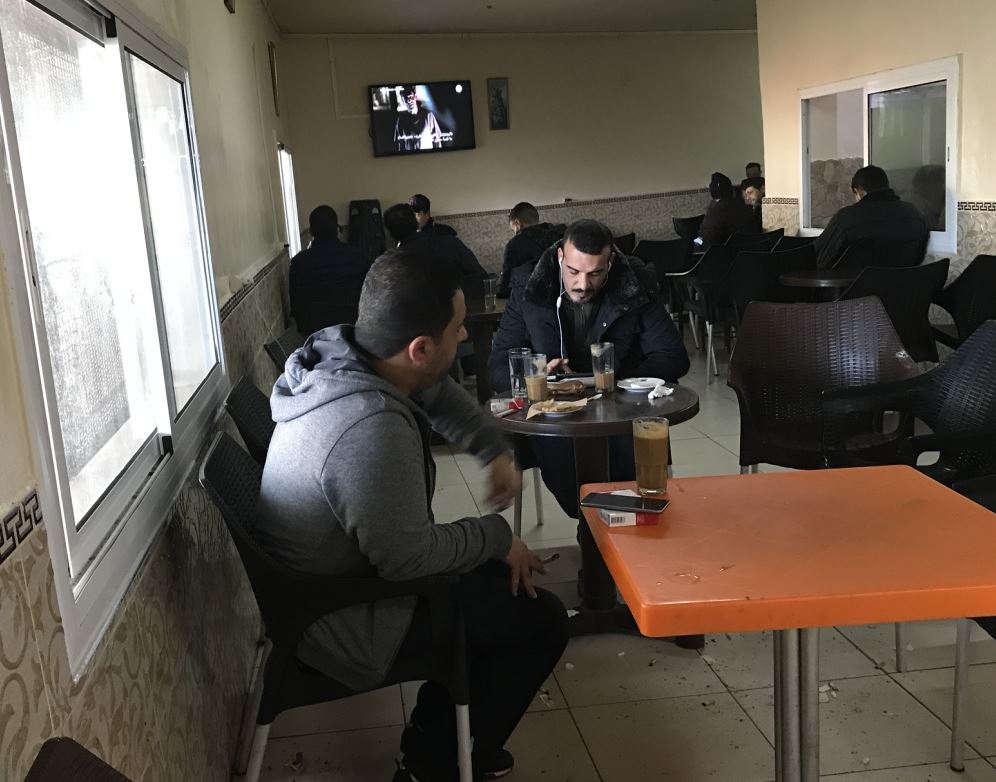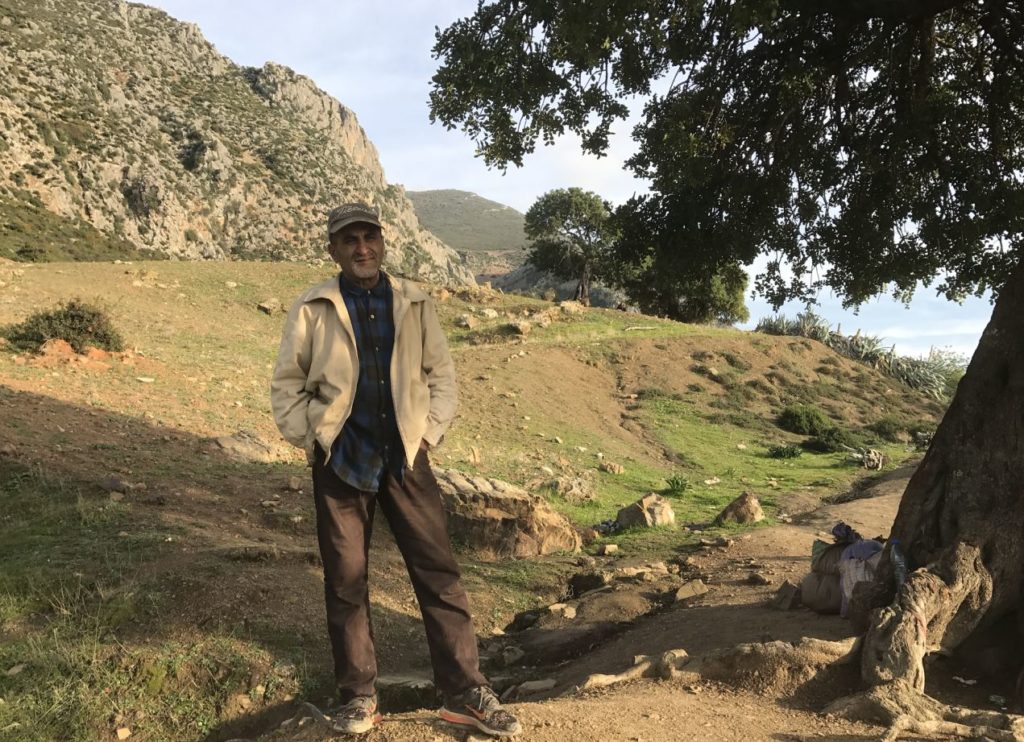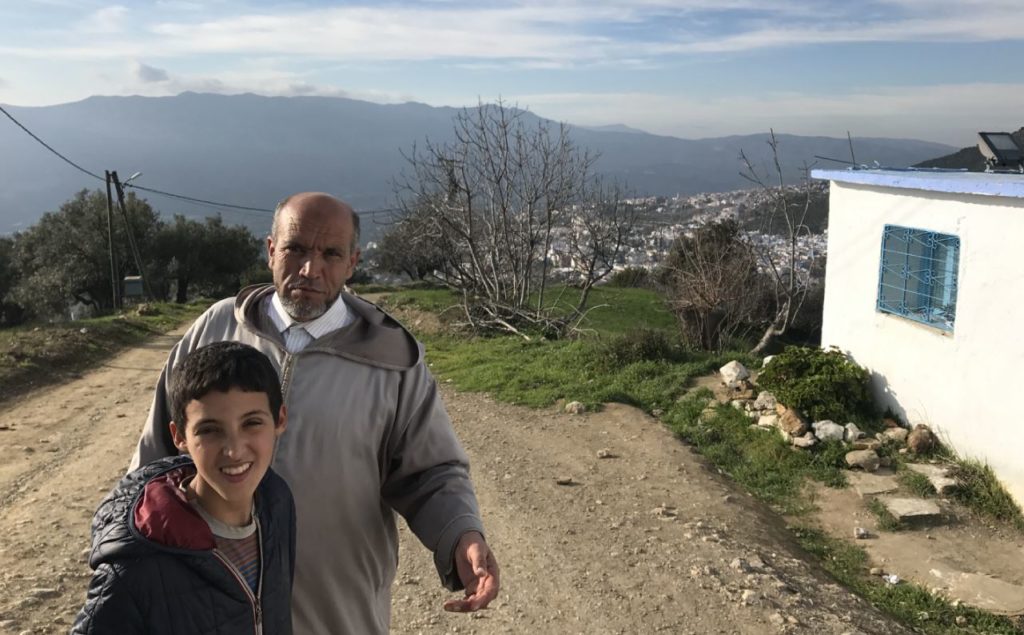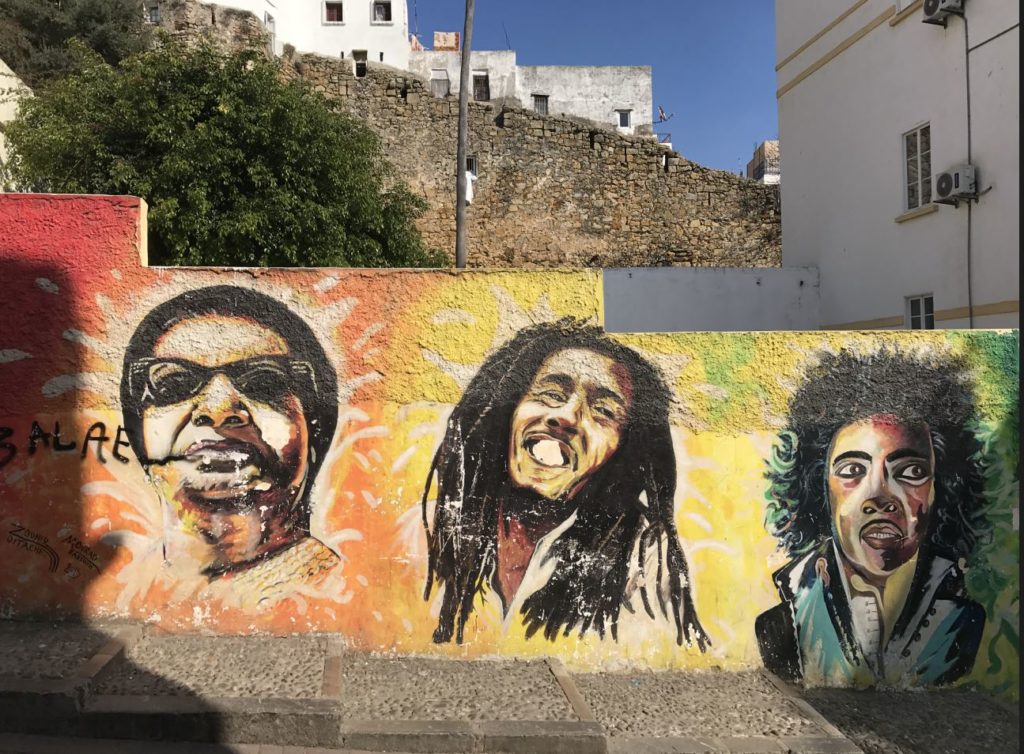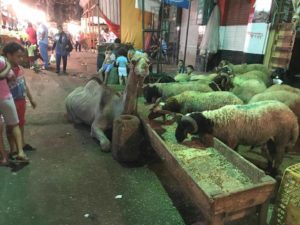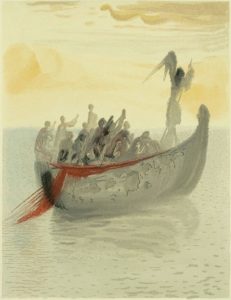Published in the Rowayat Literary Journal, Issue #7.
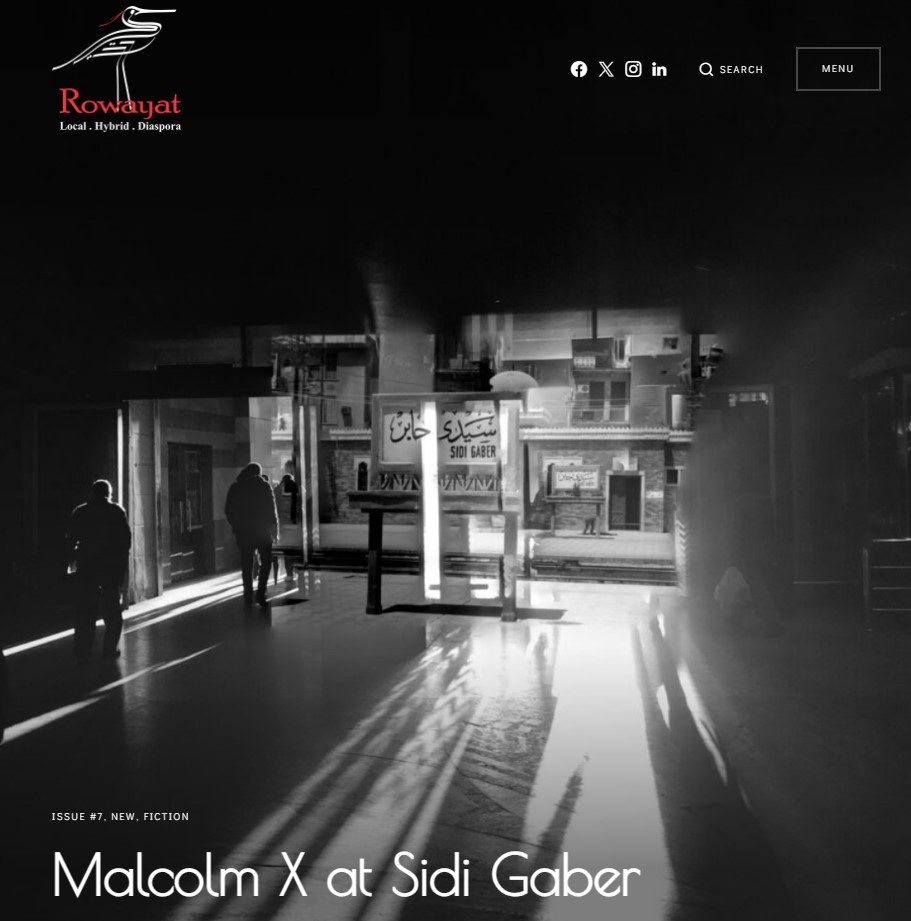
My death feels imminent, but the feeling recedes when I’m distant from the American scene that daily threatens me. Being in Egypt gives me time to see myself in the mirror a little while longer, Malcolm X wrote in his diary, In America, I might be a radical black Muslim preacher, but who am I in this country? He closed the diary and rested his head against the window of the train that was well on its way from Cairo to Alexandria. The palm trees, farmers, and villages of the Nile Delta passed by in a blur. But it was the distant sky that gripped Malcolm’s attention. The horizon dissolved beneath the weight of the summer haze, its contours lost to the unknown, the future uncertain.
“Sir, can I get you anything?”
Malcolm turned to the server in a blue coat and saw a younger version of himself in the man’s bronze complexion. He recalled his time working as a train server on the Boston-New York railway line. He looked at the name tag, and though he knew a bit of Arabic, shied away from saying the name aloud for fear of mispronouncing it. The server smiled; Malcolm smiled back. “I will have a coffee with cream.”
“Your interview for al-Ahram newspaper came out,” said Amir, a young Egyptian diplomat who, along with his wife Laila, was accompanying Malcolm on his trip.
“I really didn’t want to do this interview. But anyway, it’s done. Alhamdulillah”
“You say Alhamdulillah more times in an hour than an Azhari imam in a day,” Laila said with a laugh.
“I don’t think we can put a cap on gratitude to the creator,” Malcolm said eliciting a slow nod from Laila.
“They didn’t use your new name,” Amir said.
“I think el-Hajj Malik el-Shabazz will take a while for people to get used to.”
“So, you’re not going to be as zealous as Muhammad Ali Clay about the name change? Which, by the way, they’ve reused the photo of you grinning alongside him,” Amir said.
They both laughed as Amir passed him the paper.
“Even I still slip up and say Cassius Clay. Our names never really leave us,” Malcolm said.
“What’s in a name?” Laila asked, putting down the novel she was reading.
Malcolm’s face lit up, and after a long pause, said, “The first time I came across that question was in prison when I read Shakespeare’s Romeo and Juliet: ‘What’s in a name? That which we call a rose by any other name would smell just as sweet.’ I immediately knew that to be a blatant falsehood.”
“How so?” Laila asked.
“Our names give us our scent. Malcolm X is still very much a part of me; the reason I was once X still exists within me.”
“I disagree. You can call Egypt, the United Arab Republic, or the UAR, but that doesn’t make it any less Egypt,” she said.
“A name is a frame of mind, a worldview, a philosophy even. Change the name, and you set the tone for a different journey.”
“Well, I don’t think Egyptology is going to become UAR-ology anytime soon” Amir joked.
“As for the photo, I understand that papers need to sell. My Arabic still isn’t good enough, so I’ll have to ask you what the key points of the interview are?”
“Basically, you are all praise for Cairo, Egypt, President Nasser, Africa, liberation struggles, the Third World, more Nasser.” Amir said with a smile.
“I’m sure I was more nuanced than that.”
“It was a good interview. It will go down well with the government.”
The server brought coffee, without the cream, for Malcolm and black tea for Amir and Laila. Before Malcolm could take a sip, Amir continued, “Oh Malcolm, I forgot to tell you; you are giving the keynote speech in Alexandria tonight to an audience of youth from around the Muslim world. The Abu Bakr Siddiq camp that gathers over 600 participants annually, and you…”
“Wait, wait. This is quite sudden; I was never informed of a speech. I’m not prepared.”
“You’ll be fine, Mr. Malcolm,” Laila said, “You’ve given hundreds of speeches before. It’s naseeb.”
Malcolm tried to politely argue that he was not in the right mindset to give a speech, but not wanting to offend his hosts, he eventually gave in.
He jotted down in his diary, Have to prepare a speech tonight for an audience of Muslim youth in Alexandria. Nobody informed me. I don’t know why Arabs keep abusing the word naseeb (fate). August 2, 1964.
“What are you reading if you don’t mind my asking?” Malcolm asked Laila, trying to distract himself from the upcoming event.
“It’s a novel by an Egyptian writer called Naguib Mahfouz. It came out a few years ago. It’s called Sugar Street. Funnily enough, there is a phrase here that reminds me of you where the character asks himself ‘Could you be a model teacher, an exemplary husband, and a lifelong revolutionary?’”
Malcolm laughed. “They all sound somewhat contradictory. I’m not sure I’m a model teacher. I used to think I was when I was in the Nation of Islam. As a husband, I’ve barely seen my family all year, but I’d like to think I’m a lifelong revolutionary, and maybe that’s my Achilles heel.”
“You’re being harsh on yourself. In this novel, Mahfouz tries to argue—”
“He’s a blasphemer,” Amir interrupted, “I don’t know why you bother with his ridiculous tales.”
“You are being unfair,” said Laila “How about you read just one of his books, or better still, just leave judgment to God?”
“I have better things to do than read this rubbish, habibti.”
In the silence that ensued, Malcolm turned back to his notebook and started to jot down his thoughts for the presentation.
“My assistant Omar will be waiting for you at Sidi Gaber station, Malcolm, the first station in Alexandria,” Amir said, “Laila and I will continue to Misr Station, the end of the line.”
***
The train came to a halt at Sidi Gaber and Malcolm took his bag and walked out onto the platform.
Omar recognized him, “Assalamu ‘allaikum, Mr. Malcolm X. Welcome to Alexandria.”
“Thank you, it is quite humid. It feels like Miami.”
“Well, it’s August. We also have a district here called Miami, by the way, so if you are homesick, I can take you there.”
Malcolm laughed and noted this was his third visit to Alexandria that year.
A puzzled Omar said, “I don’t understand why I was sent to pick you up from here. The Cecil Hotel where you will be staying is closer to the final station. In any case, my car is here.”
“Omar, brother, can I ask you a favour,” Malcolm said, “I don’t have time to refresh or check in, can you take me to a nice coffeehouse where I can organize my notes for a presentation I’m supposed to give in a few hours.”
“I know just the place,” Omar said, “I’ll drop you off and take your luggage to the hotel while you work.”
As they left the station, a throng of people surrounded Malcolm and asked him to autograph the day’s newspaper, the one where he was pictured with Muhammad Ali, but all the questions were about the boxer, not him.
Omar apologized, “I’m sorry that they only know you through Muhammad Ali Clay.”
Malcolm smiled, “It’s fine; I get this often.”
Omar pulled one of the loudest fans aside, “If you knew who he was, you would be asking better questions.”
They eventually got into the car and drove along the coastal road. Malcolm stared at the Mediterranean until they arrived in the downtown area of Mansheya.
As they walked to the coffeehouse, Malcolm asked, “Why do people in this country say Muhammad Ali Clay? Why merge his old and new names?”
Omar laughed and pointed Malcolm in the direction of a statue in the center of the square. “You see that over there, that man on a horse? That’s Muhammad Ali, the founder of modern Egypt. That’s probably why, to distinguish him from Clay, and also from what is a very common name in this part of the world.”
Malcolm took out his camera and took a snap of the square with the statue in the background.
“You want to see how common? Muhammad!’ Omar shouted. Five or so people within a 20-metre radius turned to look in his direction. “You, see? It’s a blessed name, but it needs a qualifier if you are to stand out in a Muslim country.”
They walked into the Aly el-Hindy coffeehouse with its gracefully decaying late 19th-century architecture. Malcolm was entranced, staring up at the glass dome which seemed to rise all the way to the heavens. “This was a hideout during the Second World War,” Omar said. “Intellectuals like to sit here, and President Nasser himself visits from time to time.”
Malcolm sat down, unable to tear his eyes from the dome.
“Do you see an angel or something, Mr. Malcolm?”
“Not at all, just admiring the view.”
Omar started to leave but suddenly stopped. He walked up to a man a few tables away and spoke a few words, shaking hands eagerly before turning back to Malcolm.
“Mr. Malcolm X, can you please come with me? I want to introduce you to one of Egypt’s most notable novelists.”
Malcolm, keen to work on his speech, was in no mood to meet anyone, but he was nevertheless intrigued.
The gentleman slowly got up as Omar and Malcolm approached his table.
“Mr. Malcolm X, I would like to introduce you to Mr. Naguib Mahfouz, Egypt’s greatest novelist. It’s truly an honour to see him here in Alexandria.”
“You are too kind, son,” said Mahfouz, “Mr. Malcolm, welcome to Egypt. As we say, nawart Masr, you have lit up Egypt. I read your interview on the train from Cairo. It was an interesting piece.”
“Thank you, sir. Whenever a man says ‘interesting,’ I take that as an ambiguous sign.”
“Not at all,” Mahfouz laughed, “Perhaps I have more questions, but I enjoyed it. Please take a seat.”
Omar excused himself and informed Malcolm that he would pick him up at 7.30pm.
“I want to apologize. I had vaguely heard of you before, but only got to know you better when I read the interview.”
“That’s perfectly fine. No apology is needed. Likewise, I hope you forgive me for not knowing one of Egypt’s greatest novelists until this morning.”
“There is no need for all these formalities,” Mahfouz said, brushing off the compliment, “The first thing that surprised me is that you speak of black oppression in your interview when you are quite light for a black man. You look like half the people in this coffeehouse.”
The relative lightness of Malcolm’s skin had always been a delicate subject for him. He replied politely, “America is a strange place, in every sense of the word.”
Mahfouz opened his mouth to say something, but just then a waitress came to take their orders.
“This is odd, I’ve been coming to this coffeehouse for many years,” Mahfouz said, “and this is the first time I see a young woman working here. What is your name?”
“Zohra,” she replied.
“Nice to meet you, Zohra. I will have another tea, and my friend will have a…?”
“Black coffee with cream.”
“Black coffee with cream?” said Mahfouz, “This is not the Nile Hilton.” He waved to Zohra to just bring plain black coffee. Malcolm saw him write “Zohra” in his notepad and circle it several times.
“She’s probably from a village in the Nile Delta,” said Mahfouz. “They leave their homes to earn a living in the city. When I look at a young fellaha like her, I see the weight of all that is wrong with Egypt on her shoulders.”
Five minutes later, Zohra returned and placed the coffee and tea on the table but left before they had a chance to ask her any more questions.
“What does her name mean?” Malcolm asked.
“It means ‘blossom,’ but like Egypt, she is anything but blossoming.”
“I see. If I understand correctly, you are from Cairo,” Malcolm said, “What brings you to this city?”
Mahfouz dropped three spoons of sugar in his tea and leaned back on the wooden chair, “I’m working on a novella set here in Alexandria. It is my first piece set primarily outside Cairo. I came here for inspiration.”
“What is it about?” Malcolm asked.
“It’s still in its early stages, but it revolves around a Greek woman running a boarding house with different Egyptian guests, each representing an element of the tragedy that is Egypt.”
Malcolm, realizing there was no point in avoiding Mahfouz’s gloom, decided to ask what he meant. “Tragedy? What tragedy? Is it because of the recent dissolution of the union with Syria? Perhaps the UAR didn’t succeed but that is not to say…”
“Do you think I care about that?” Mahfouz interrupted, “With all due respect to Syria and its wonderful people, look at the state of Egypt! If you cannot maintain the integrity of Egypt, then how can a union possibly succeed?”
Mahfouz looked around the room, lowered his voice, and pointed to the dusty black and white portrait of the president hanging on the wall. “Do you think every leader who touts anti-imperialism is automatically one of the good ones, Malcolm?”
“I don’t quite understand the question,” Malcolm replied.
“There are many writers and artists in jail here. All of them, I can assure you, are anti-imperialist and pan-African. They simply said something that was not in line with the regime.”
“Yet, you continue to write despite the odds you face. You could simply stop writing and change careers, but you don’t.”
“As someone who faces death threats, you don’t seem to be in a hurry to change careers either,” Mahfouz replied.
“Neither of us chose to live in this era. God put us here, and we are only responding to the trials of our time in the best way we can. With your free will and passion, you publish books and work on the next one…”
“Yes, yes, yes,” said Mahfouz, “even Nasser eagerly reads my work. Often favourably. He has intervened to prevent the censors from banning this book or that book. But arbitrariness is no ally of a writer. Pity the land where creativity is held hostage to the whims of the leader.”
“In some respects, it is no different from America,” said Malcolm.
“I disagree. Let me give you an example. A few weeks ago, security forces stopped me on a street in Cairo to ask what I meant by one of my novels—or I think it was a short story—that I wrote, and who was the intended target. I had to reassure them that it had nothing to do with the president or the regime. They let me go. Is James Baldwin harassed for his thoughts by your police on the streets of New York?”
“I have to stop you there!” Malcolm said, “James is a good friend, and I can speak with certainty when I say, he is harassed from many directions. There is a reason why he is in Istanbul these days.”
Slowly tracing circles on the table with the teaspoon, Mahfouz said, “Let me rephrase that. Try and find a James Baldwin in Egypt who writes the equivalent of The Fire Next Time that curses the establishment and let us see how long he remains at his typewriter.”
“Mr. Mahfouz, I’m not ignorant,” said Malcolm. “I know injustice when I come across it. I see the shoeshine boy sitting over there and wonder if he will survive to see tomorrow. But you need to understand something, I walk the streets here and have not been deprived of my rights or had my color questioned. This is radical for a black man from America.”
“Have you considered maybe you have the swagger of a foreigner, the protection of a Western passport, a colour that is not quite black? What about the charcoal suit that raises your stature, not to mention the traveller’s cheques dangling from your pocket that open doors? Your position as a prominent American Muslim that people would like to meet? Or that you brush shoulders with a rising boxing star? Or receive personal invitations from presidents? Did any of that occur to you, Mr. Malcolm, across your landscape of introspection?”
Malcolm was by now tired of Mahfouz’s cynicism. He politely stood up with the parting words, “It was a pleasure to meet you,” but Mahfouz placed his hand on Malcolm’s arm. “Please, sit down. I apologise if my words upset you. That was not my intention.” Malcolm reluctantly sat back down.
They sat in awkward silence for a few minutes before Malcolm finally said, “When Arabs visit New York, especially Manhattan, they are dazzled by the lights. They won’t set foot in Harlem, except occasionally some Sudanese visitors. I take my hat off to them. There are some Arab students enrolled at Columbia University, which is in Harlem, but the university pretends the black neighbourhood around it doesn’t exist. Arabs would barely have a clue if a race riot was happening a few blocks away, or if the prisons were filling up with Negroes. When an Arab tourist walks past a Negro, that man or at the very least someone he knows has definitely been subjected to police violence or been to jail, but I don’t expect them to know that, Mr. Mahfouz.”
Mahfouz looked like he was about to say something but just nodded his head.
“I don’t expect them to know, but I would hope that if they did get to know something of our struggle, they would show understanding at the very least. I must always assume they are well intentioned. I have taken up this attitude more so since my Hajj trip to Mecca a few months ago. I understand many things, but it does not mean I will speak of everything. Everything has its time and place.”
“The 1960s so far has been a decade of revolutions. I know in these times of upheaval, nuance will be lost. But we can’t afford to miss the train, we cannot let this global movement that breaks the shackles of the oppressor pass us by. We have no real allies in America, and we are still developing the language to describe our pain. But the burden is lighter when we share it with our brothers and sisters in Africa and Asia.” Malcolm paused and looked at Mahfouz, “Yes, my politics align with your leader, and yes, I do support him for the reasons I just said, but I never stop thinking about the shoeshine boy over there. So please try to see where I’m coming from.”
Mahfouz pulled out the newspaper with Malcolm’s interview. “Let me quote you, ‘I’m for justice, no matter who it is for or against, etc., etc. I’m for whoever and whatever benefits humanity as a whole.’ Unlike what is written here, in person, you admit you are not for justice for everyone.”
“You are putting words into my mouth,” said Malcolm.
“How about this line, ‘A man who stands for nothing will stand for anything.’”
“I’m glad you brought that one up,” said Malcolm, “let me reword that for this occasion. ‘A man who stands for everything will achieve nothing! We pick our battles. The pen, pulpit, and pistol are different paths towards justice. Not every cause has to be theatrical.” He paused again, “It’s like you’re making a concerted effort to misunderstand me, Mr. Mahfouz. From what I gathered this morning from a heated exchange between my colleagues, you are a man who is misunderstood across Egypt.”
Mahfouz leaned back on his chair and paused for a moment. “Yes, yes. It is true. I know the feeling of being misunderstood very well. I’m tarnished with the false claim that I am somehow against God and religion. Nothing could be further from the truth.”
“Certain minds cannot distinguish between fiction and reality. Allegories are a struggle for the man who treats life literally. One unacceptable book is enough to condemn all your works, let alone condemn you in perpetuity.” Mahfouz paused, “I sometimes wish justice could be clearer, just a little bit closer to perfect. But if that were so, then the world would not need artists, novelists, and preachers.”
“Leave the perfection to the afterlife and let’s sort out the mess on this earth while we are still breathing,” said Malcolm.
“I have to admire you converts,” said Mahfouz, “You see something deeper in the faith that we have long taken for granted or chosen to ignore.”
“What can I say but alhamdulillah,” Malcolm said simply.
***
It was 4pm and the coffeehouse was stuffy, but neither man wanted to end the conversation.
“How about a stroll on the boardwalk?”
“What is a ‘boardwalk’?” asked Mahfouz.
“Umm, the sidewalk, the cemented or paved sidewalk along the sea.”
“Ah, the corniche!” Mahfouz laughed, “My American English is lacking, but I’m glad to see you have taken up the Alexandrian tradition of walking along the corniche.”
“I’ve taken long walks on previous visits. It helps clear my thoughts.” Malcolm said as he stood up to stretch.
“Won’t you finish your coffee first?”
“I’ll finish it when we return.”
The six foot two Malcolm and the five foot four Mahfouz made an odd sight as they crossed the gardens and the road and stepped onto the corniche. They walked side by side, their gaze on the water, a strong wind – unusual for August – pushing against their faces. It was a full fifteen minutes before either of them broke the meditative silence.
Mahfouz was the first to speak, “Let me ask you, did you get off the train at Sidi Gaber or Misr Station?”
“Sidi Gaber.”
“You know, I started thinking about death when I turned 40. I recently turned 50, and now I’m obsessed with the idea. Egypt can do that to you.”
“I turn 40 next year, and I’ve been dancing with death since my childhood,” said Malcolm.
“I always say there are two stations in life, Sidi Gaber and Misr Station. When you pass by Sidi Gaber, it reminds you to get your bags ready to disembark at Misr Station. The end of life.”
“You can say I’m perpetually at Sidi Gaber, but my Misr Station might just be in Harlem.”
“We are all at Sidi Gaber station, Malcolm. The angel of death awaits at the final station.”
“Only Allah knows when we will see our last summer.”
“It surprises me that you do not write. You should consider it. Even your nemesis Martin Luther King has penned a few books.”
“He is not my nemesis. It’s a story that just won’t die out. We met a few months ago in Washington, shook hands in front of the cameras. I don’t know what more needs to be done to kill that false image.”
“Well, you get my point.”
“I’m not a writer of books, but I do write essays from time to time, although technically, I’m close to finishing a book. I’m in the final stages of transcribing my autobiography. It should be ready for publication by next year. I will send you a copy. That’s if I live long enough to see it.”
“Malcolm, if you feel your life may be under threat, why don’t you stay in Egypt. I think President Nasser would be happy to host you.”
“A few other African heads of state have also made that offer. It was kind of them, but I declined.”
“You should bring your family and move to Cairo. After all, you are all praise for Cairo and Nasser in your interview.”
“Mr. Mahfouz, with all due respect,” Malcolm took a moment to gather his thoughts then resumed, “could you live in Alexandria?”
“Alexandria is a refuge for my soul. But no, Cairo is home.”
Malcolm smirked. “You cannot consider an enchanting city like Alexandria your abode? A city which is only a four-hour train ride away from Cairo, and yet, and yet, sir, you expect me to leap over the Atlantic and make a home here?”
“But when the price of your home is death?”
“To stop or flee from my calling, my life’s work would be a greater death. Right now, I have to balance the cause with staying alive long enough to see my daughters grow up.”
“Inshallah you will. What are their names?” asked Mahfouz.
“Attallah, Qubilah, Ilyasah, and last month, Gamilah Lumumba was born.”
“Alf mabrouk, a thousand congratulations. You named her after the late Congolese rebel leader?”
“Everything in my life comes as a surprise to you.”
“It is not that. Have you lived through a real revolution, Malcolm?”
“Let me guess, you will say because I wasn’t part of something like Egypt’s 1952 revolution, I don’t have credibility?”
“Don’t assume too much. 1952 was not a real revolution; that was a coup.”
“What are your children called?” asked Malcolm.
“Fatima and Um Kalthoum.”
“Um Kalthoum? You named her after the singer I hear everywhere in coffeehouses in the Arab world?”
“How would you know that?”
“Either way, it doesn’t matter. You named her as such because it meant something to you.”
They eventually stopped in the Camp Shizar area of the corniche to purchase termes, lupini beans, from a cart to snack on. Malcolm then saw an ice-cream cart and requested the biggest scoop possible.
“You don’t strike me as an ice-cream person at all” said Mahfouz who was baffled by the sight of the solemn and austere Malcolm attacking his ice-cream cone with childlike delight.
“In America, my friends find it ironic that I prefer vanilla over chocolate ice-cream,” Malcolm said.
Mahfouz chuckled which led Malcolm to burst into laughter almost making a mess of what was left of the ice-cream. After their laughs subsided, Malcolm realized he needed to return to the coffeehouse for Omar to pick him up. They headed back but underestimated how far they had walked. A few metres from the coffeehouse, Malcolm saw an anxious Omar pacing up and down.
“Mr. Malcolm, we only have 20 minutes!” said Omar.
Malcolm turned to Mahfouz, “I apologise Mr. Mahfouz, I have to go; can we meet tomorrow?”
“I have some errands to run in the morning and will catch the 2:15 train back to Cairo. Perhaps we can meet just before then?”
“In that case, I will board the same train. I must return to Cairo as well to catch my evening flight. It might be my last visit to Egypt for some time.” Malcolm said, his tone certain.
“Although Misr Station is closer, it is far too crowded. Let us meet at Sidi Gaber. Platform 4 at 2pm?”
“Inshallah,” Malcolm said, “I will also introduce you to my friends, one of whom is an admirer.”
As they walked away, Mahfouz shouted, “Ya Mr. Malcolm X! None of my novels have been translated into English yet, but I will bring you an Arabic one. When you master Arabic, you can read it someday. I will bring it tomorrow.”
Malcolm smiled and said, “Thank you, it will be first on my reading list after the Quran.”
A thought struck Malcolm as he walked away. He turned back. “Mr. Mahfouz. I have a final question. Can one be a model teacher, an exemplary husband, and a lifelong revolutionary?”
Mahfouz looked taken aback for a few seconds before laughing.
“But how did you know about that? Mesh momken. You do not cease to amaze me. With regards to the question, I know it doesn’t apply to me. Having said that…”
“Mr. Malcolm, we are late!!” interrupted Omar.
And with that, they ran to the car and sped off.
***
Malcolm arrived at the venue and saw Amir and Laila waiting for him together with some other delegates who crowded around him. Youth from Muslim nations spanning from Morocco to Indonesia greeted him enthusiastically, many conveying the regards of their countries’ leaders. One Algerian said, “President Ben Bella looks forward to meeting you.”
After the introduction by the moderator, Malcolm walked up to the podium with the few notes he had written on the train.
“Assalamu Allaikum, peace be upon you… I want to say…” Malcolm paused and looked out over the throng of expectant faces. “I’m honoured to be the key speaker to open…I’m, umm, it is a pleasure to be here…I’m happy…umm…your anthem song shook me. I…” He looked up at the ceiling, the hours of conversation with Mahfouz still replaying in his head.
The puzzled crowd moved restlessly. Malcolm took a deep breath and continued.
“Many years I spoke in the name of a man who lied and swindled the masses.” He soon found his voice again. “The Nation of Islam movement offered me hope and reform, but it was in some sense a cult of personality, a distorted Islam; it eases my heart to know that I left it and came to practice the same faith practiced by many of you here. Brothers and sisters, I’m here to tell you…” Malcolm saw a list of kings and presidents that he wanted to praise on his notepad. He took out his pen, crossed out their names, and rested the pen on the lectern. The tempo changed.
“In my spiritual journey, I learned that Allah has 99 names. I will be honest and tell you now that I cannot recall all of them, but it suffices that truth and justice are two of them. I speak in the name of no leader who walks this planet. Truth and justice know no era or leader.”
Amir turned to Laila, “I hope they don’t broadcast this. How does one start a speech without invoking the president of the republic?”
“They won’t broadcast it if it will ruffle feathers,” Laila said.
“Arbitrariness is no ally of the writer, nor is arbitrariness an ally of the thinker and doer, may we all have a safe and secure life with healed hearts answerable to no one but the Divine,” said Malcolm, his voice rising.
The speech went on for 30 or so intense minutes, and when it came to an end, the crowd erupted in a mix of applause and Islamic chants, liberation slogans, and shouts of solidarity for the Afro-American struggle in an intoxicating atmosphere of Third World solidarity that went on for a few minutes. As Malcolm stepped down, many delegates surrounded him, taking photographs and asking for autographs. The youthful energy drawn from countries breaking out of colonialism gave Malcolm a peculiar elation that he had not felt in a long time.
Omar approached Malcolm “I didn’t know where you were going with this, but I can’t fault any of it.”
“This was more uplifting than all the Organization of African Unity summits and diplomatic meetings,” Malcolm said, “A far cry from having to deal with a room full of carefully worded communiques from African leaders. The voices of the youth were unchecked, raw, zealous, revolutionary. It was the closest I have come to pure love.”
“You know, there is an old Arab proverb that says, ‘The word of the tongue roams in the ears, but the word of the heart remains in the heart.’ Insincere words will be forgotten, yet your words driven by genuine emotion have built castles in their hearts,” said Omar.
“Alhamdulillah” said Malcolm, “in Mecca, I was spiritually reborn. In Cairo, I was internationally reborn, and tonight in Alexandria, something special in me was reborn and I have yet to give it a name or a shape.”
After dinner was served and conversation exhausted, they discussed the arrangements for the following day. Malcolm requested to leave Alexandria on the 2.15pm train from Sidi Gaber. Omar said, “We will pick you up from the hotel at 12.30pm. We can have a quick seafood lunch before we leave.”
***
Malcolm paced up and down the hotel lobby. It was 1.20pm. “Arab time!!” he mumbled to himself in exasperation.
The car showed up at 1.50pm. Omar apologised. It had taken him a while to buy the train tickets. They agreed to skip the seafood restaurant and just order lunch on the train.
Meanwhile, Mahfouz arrived at Sidi Gaber at 2pm and waited for Malcolm on the platform. The train arrived on time, and Mahfouz boarded, checking his seat number: carriage 4, seat 37.
Malcolm finally arrived five minutes late and hopped onto the train just as it was about to move.
Amir passed Malcolm his ticket. Carriage 4, seat 32. Malcolm and Mahfouz were a mere four rows apart.
“Omar tells me you spoke at length with Mahfouz. How did it go?”
“I never got to finish my coffee with him. He is a complex man.”
Laila was curious but stayed quiet. She didn’t want another argument with Amir.
The journey was a bizarre series of misses. At one point, Mahfouz turned to look down the carriage aisle but only saw Amir in his line of sight. When Malcolm went to the bathroom, Mahfouz was asleep with a newspaper covering his face. Malcolm walked the length of the train and at one point imagined the blurry reflection of Mahfouz’s face in the window, but it was just another government bureaucrat in first class.
The journey continued without either realizing the other was on board, let alone a few seats away.
“Maybe he boarded an earlier or later train,” Laila said, who had been hoping to meet Mahfouz.
“Maybe,” Malcolm replied. He was upset; he hated to break promises.
The train came to a halt at Cairo’s Ramses Station. Mahfouz got up from his seat and briskly left the train. Amir woke up Malcolm, who stood up and grabbed his bag and suitcase from the overhead shelf. On his way to the exit, he noticed a book stuffed in a copy of the day’s newspaper abandoned on one of the seats. He took it and went to the conductor.
“Someone forgot this book?”
The conductor looked at it. “Oh, a book by Mahfouz, actually he was just…”
Malcolm realized what had happened. He snatched the book from the conductor’s hand and bolted onto the platform scanning the faces of the passengers. He pushed through the crowd straining to find Mahfouz. When he finally came to a stop, an agitated Amir asked him, “Why are you running? What is wrong?”
“He was on the train.”
“Who?”
“He was in the same carriage.”
“Who are you talking about?”
“Him!” Malcolm waved the book in his hand. Amir finally understood and shrugged as if to say, so what?
Malcolm opened the book. Inside, on the first page, there was a note in neat English handwriting.
Dear Malcolm,
I was hoping to catch you on the train but naseeb would not allow. I guess you made other arrangements. That is ok. I hope that life will be kinder upon your return home.
I will hold onto this book and give it to you when you return. I hope you make it back next summer Inshallah, or even earlier. Alexandria is a magical place in winter. If you cannot for whatever reason return to Egypt, then I hope and pray that your work shines and outlasts you.
I had meant to tell you, that you are the model teacher, an exemplary husband, and a lifelong revolutionary. You are all three and more. Had I known you a decade ago, you would have been the inspiration for a worthy character in that novel.
Masalaama,
N. Mahfouz, August 3, 1964
Laila looked at the book title. “He gave you The Thief and the Dogs. It might make you lose faith in revolutions. It’s a good thing you can’t read Arabic for now.”
***
Mahfouz got into a taxi, “Khan el Khalili,” he said.
“Mr. Naguib Mahfouz! What beautiful naseeb! I will take you to the moon and back” said the excited driver with typical Egyptian flattery.
The driver dialled through several radio stations, before settling on the national news. The announcer stated, “Last night in Alexandria, the black American Muslim Malcolm X delivered a speech to a large audience of…”
“Turn up the volume, son!” Mahfouz said.
The announcer played three minutes of the key moments in Malcolm’s speech, followed by a summary in Arabic.
“Impressive it was not censored,” Mahfouz said.
“Do you know the speaker?”
“Yes, we met yesterday in Alexandria. He is a political activist and a friend of Muhammad Ali Clay.”
The driver went wide eyed “Tell me more!”
“I will just say that he is a man I learned a lot from, and maybe he learned something from me.”
“His voice sounds familiar,” the driver said. “I think he might be the man I met yesterday on my train shift. I work the snack trolley there two days a week. He looked worn down, austere He wasn’t like the other black American visitors who are usually jovial. I imagined myself like him one day, in a nice suit, worldly, a traveller, cosmopolitan. I really wanted to talk to him, but I was too embarrassed. I smiled, and he smiled back, but he didn’t even finish the coffee I brought him.”
“Many coffees go unfinished,” Mahfouz said.
“I know, it’s just that I really went out of my way to make him a good coffee, minus his strange request for cream in it.”
A warm grin spread across Mahfouz’s face.
“What’s your name son?”
“Sarhan”
“A nice name.”
Sarhan smiled.
“I have something for you, Sarhan.” Mahfouz reached into his bag for the copy of the book he had brought for Malcolm and realised it wasn’t there. “I apologise, the novel I would have given you … I must have left it on the train.”
“It’s ok, Mr. Mahfouz. It was naseeb for someone else to pick it up, just like it was naseeb for me to pick you up. I can always buy the book, but I can’t always drive the distinguished author behind the book.”
Mahfouz smiled and said, “Shukran.” He leaned his face against the window, his gaze falling on a group of shoeshine boys exchanging jokes and sharing a laugh before parting ways to tout for customers with their boxes slung over their shoulders.
***
In the taxi on the way to the airport, Malcolm looked out at the dusty sky but his thoughts kept shifting back to Mahfouz. He smiled to himself and added a line at the end of Mahfouz’s note, “Shukran. And above all else, Alhamdulillah.”

